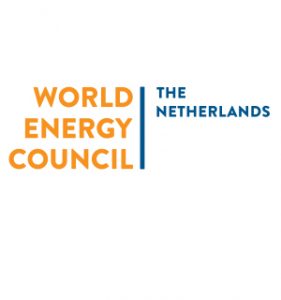WEC NL 2021 report: Covid-19 crisis offers new opportunities to achieve European Paris climate goals
Watch the recording of WEC NL Conference 2021 at www.worldenergycouncil.nl !
Intensive decarbonization is now badly needed to permanently curb CO2 emissions after the corona crisis. That is the main conclusion of the new report from the World Energy Council (WEC) Netherlands. In the report, various parties answer the question to what extent the corona crisis has jeopardized the achievement of the Paris climate targets.
According to Jeroen van Hoof, chairman of WEC Netherlands, the corona pandemic has shaken up the world when it comes to making sustainable choices: “The big question now is whether Covid-19 has brought about permanent changes or has only led to a temporary dip in CO2 emissions, after which we continue as before. The economic downturns that we have experienced together in recent decades have always led to a temporary decrease in CO2 emissions, only to lead to a stronger increase during the recovery. So together we must ensure that we are able to maintain the momentum that has now been created, with increased attention to the need for greening. If we do so, we will be able to achieve a more positive scenario than before the pandemic, a faster transition and also more economic growth for Northwest Europe.
Jan Willem Velthuijsen, PwC’s chief economist, adds that there are quite a few early indications that we may well end up with a slightly higher growth rate in the longer term after the crisis, and that there are also signs that the energy mix is greening more quickly. So that, on balance, even with higher growth rates and accelerated decarbonization of the energy system, we will still need to achieve the Paris climate targets: “Growing faster and still meeting the CO2 targets means more intensive decarbonization. Governments from China to the US and the EU are now taking the climate challenge much more seriously, with major concrete steps taken by 2020. Investors are pushing ever harder for accelerated CO2 targets. Our own behavior is becoming less energy intensive by working from home and flying less. Hydrogen production, electrification of transport and other technologies are making their breakthrough to economic scale. The rising CO2 price is starting to make more and more green projects profitable. In that respect, Europe can really lead the world.’
Large industrial clusters in Europe play an important role in accelerating decarbonization. Van Hoof: ‘Within those clusters you see more cooperation and a focus on circular business models and more efficient use of energy. In the chemical industry, for example, you see the potential of hydrogen as an energy source for chemical processes. This will have a significant impact on energy demand in Europe.’
About the World Energy Council
The World Energy Council is the principal impartial network of energy leaders and practitioners promoting an affordable, stable and
environmentally sensitive energy system for the greatest benefit of all. Formed in 1923, it is a UN-accredited global energy body that
represents the entire energy spectrum. It counts over 3,000 member organisations from over 90 countries, including public authorities,
private and state corporations, academia, NGOs and energy stakeholders. The World Energy Council informs global, regional and national energy strategies by hosting high-level events such as the World Energy Congress and publishing authoritative studies. It works through its
extensive member network to facilitate the world’s energy policy dialogue. Further details are available on www.worldenergy.org and
www.energycouncil.nl .

